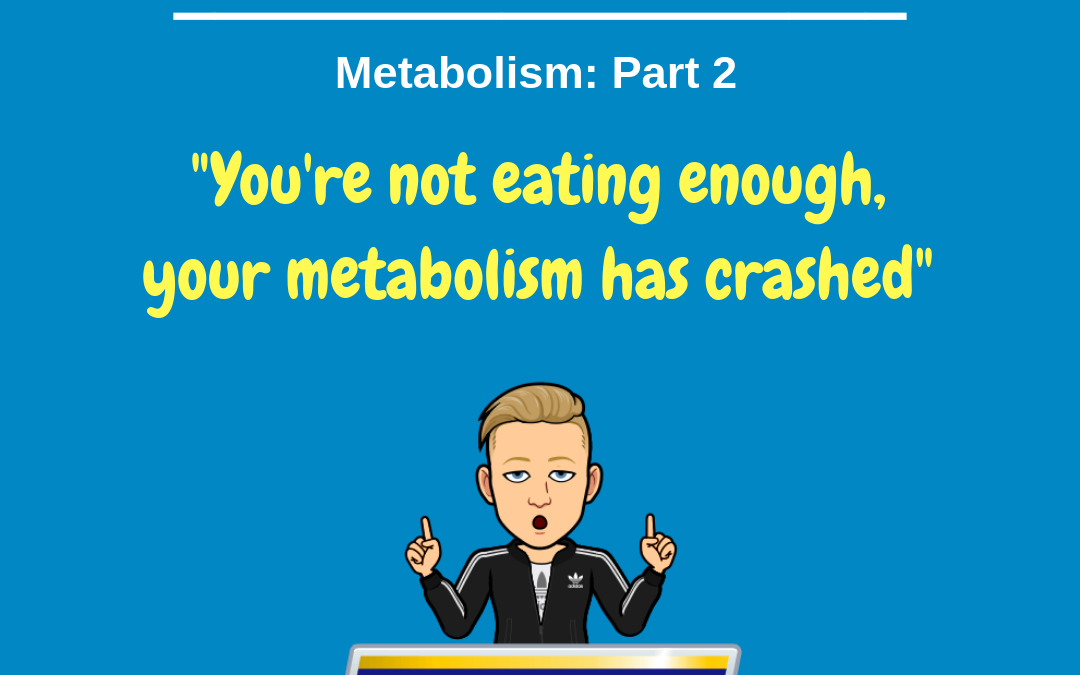People are quick to blame their ‘broken’ metabolism or state that they have metabolic damage because their calorie intake is too low. The reality is you you are eating too much (cake hands) or not moving enough, but blaming your metabolism is the easy way out.
Several studies have shown that the metabolic decline associated with dieting, including long periods of very low-calorie dieting, ranges from less than 5 to about 15%. The most applicable case study for metabolic damage is the famous Minnesota starvation experiment in the 1940’s which was a 24-week starvation phase, during which the caloric intake of 36 volunteers was drastically reduced (50% of their average daily energy expenditure), several hours of manual labour every day and walk 22 miles a week. The results was an average weight loss of 25% of their pre-starvation body weight
Furthermore, it took about a 10% reduction in body weight to produce the larger, double-digit drops (10-15%), and most of the research was conducted with people who made every mistake possible in the bro science fat loss rule book- they ate too few calories, not enough protein and did no resistance training.
To put the metabolic decline into context, if you started your weight loss journey with a RMR of about 1,800 calories per day, lived int he conditions mentioned in the Minnesota starvation experiment for 6 months, and then regained the weight lost, you could expect a RMR of about 1,600 calories per day. Although not ideal, not enough to make you incapable of losing weight again.
The majority of people who are on a ‘diet’ don’t consistently live in a calorie deficit that severe and do as much activity. Meaning a lapse in adherence is more likely to be the reason for not being able to lose weight, not metabolic damage.
Every day you engage in varying amounts of spontaneous activity like walking around while on the phone, walking up the stairs to the bathroom or tapping your feet when your anxious
The energy burned by these activities is known as non-exercise activity thermogenesis , or NEAT, and it plays a much larger role in total daily energy expenditure than most people realise.
Research shows that NEAT can vary by up to 2,000 calories per day among individuals, and the same research indicates that people could burn an additional 350 calories per day by taking simple actions to increase general activity levels, like taking the stairs when possible, walking relatively short distances instead of driving, doing chores instead of watching TV, etc.
Now, when you’re in a calorie deficit, your body naturally wants to move less, resulting in reduced daily energy expenditure.
Stop blaming the metabolism, move more or eat less⠀⠀⠀⠀⠀⠀⠀⠀
So don’t blame the metabolism.
Move more and/or eat a bit less, for the most part.


Recent Comments